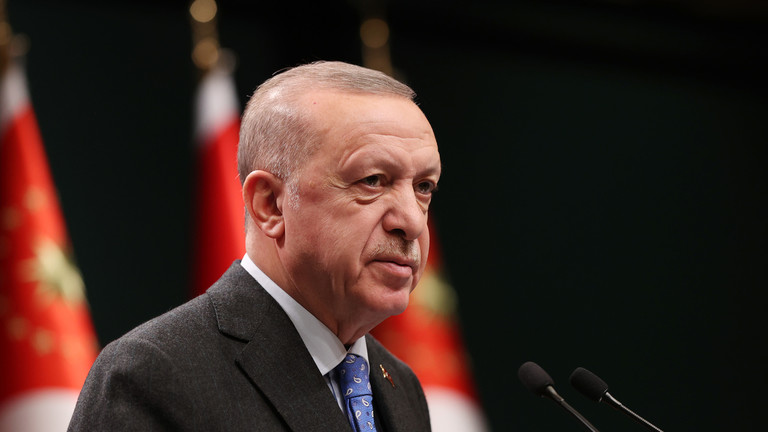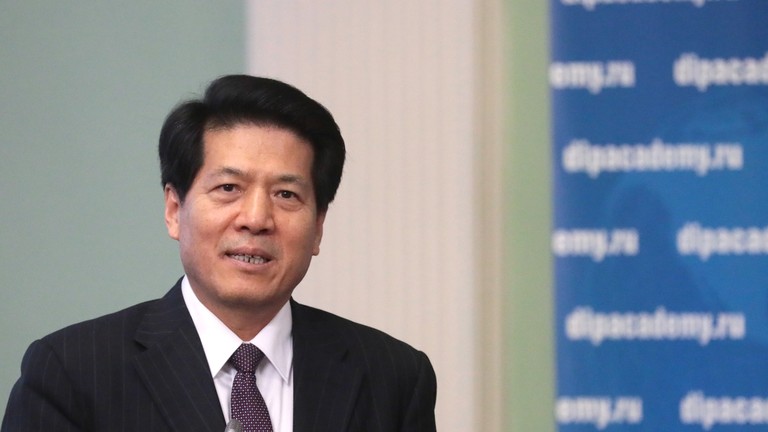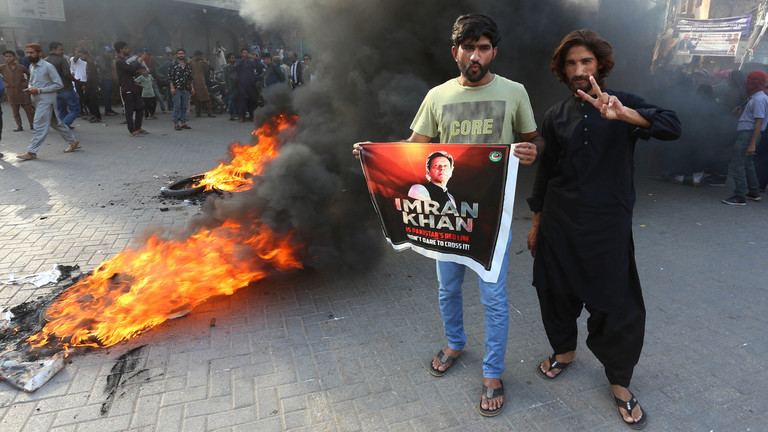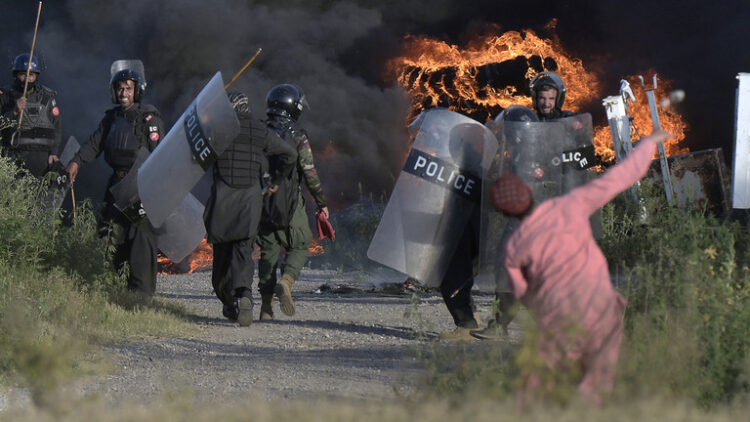Portraying herself as an underdog who has crashed through a glass ceiling, Italy’s new right-wing prime minister, Giorgia Meloni, who heads the neo-fascist Brothers of Italy party, sought to calm critics in her first public address since taking office, decrying fascism, voicing support for the European Union and NATO, and vowing continued backing of Ukraine in its war with Russia.
“I have never felt sympathy or closeness towards antidemocratic regimes … including fascism,” she said, adding that she considered Benito Mussolini’s “racial laws of 1938” — which declared that Italians were Aryans while segregating and ultimately imprisoning Italian Jews, Ethiopians and Eritreans — to be “the lowest point in Italian history, a shame that will mark our people forever.”
But the ascension of Italy’s first hard-right leader since the end of World War II continues to have many in Europe on edge.
“The jury’s still out about her,” Brussels-based Roland Freudenstein, vice president of independent think tank GLOBSEC, told Yahoo News. “One strain of the argument [focuses on] the party’s fascist past — the symbolism, the Roman salute that they still use in their speeches — and her appointments of questionable people.” Some in Brussels, he said, regard her as “a right-wing extremist, who we should not only watch out for, but confront.”
French European Affairs Minister Laurence Boone underscored that concern, telling Italian newspaper La Repubblica that France will be keeping an eye on Meloni’s government. “We want to work with Rome but we will monitor respect for rights and freedoms” and “pay close attention to respect of values and the rule of law.”
French Prime Minister Élisabeth Borne echoed his sentiments, saying her country would pay heed to “human rights and the right to abortion” in Italy.
Newly elected Italian Premier Giorgia Meloni rings the Cabinet minister bell during her first Cabinet meeting in Rome, Oct. 23. (Andrew Medichini/AP)
“There’s a lot of concern, especially outside Italy,” Arturo Varvelli, director of the Rome office of the European Council on Foreign Relations, told Yahoo News. He’s been besieged with calls from political analysts across Europe asking, “Wow, so now you have a new fascist government?” — an assessment he disputes. “Meloni is not a fascist,” he added.
While Meloni, the 45-year-old single mother from working-class origins, ran on a “God, Homeland, Family” platform, has vowed to clamp down on African migrants and has taken aim at gay rights, Varvelli believes she is far less worrisome than two other Italian politicians, Matteo Salvini of La Lega and Silvio Berlusconi of Forza Italia, in the conservative ruling coalition she led into power in a right-wing alliance that won 44% of the vote in September’s election. Some critics of the two men, however, say their inclusion in Meloni’s government casts further doubt about her, especially regarding her stated support for Ukraine.
“Last week was supposed to be dominated by Meloni and her governmental nominations,” conservative commentator Benjamin Harnwell, host of Steve Bannon’s podcast “WarRoom: Rome,” told Yahoo News. “In fact, the news cycle was totally hijacked by leaked recordings of Berlusconi.”
In the recordings, taped during a party meeting, Berlosconi admits to rekindling his friendship with Russian President Vladimir Putin and blames Ukrainian President Volodymyr Zelensky for forcing Putin to launch his invasion of Ukraine. Berlusconi went on to personally attack Meloni, writing to party members that she’s “self-important, bossy, arrogant and ridiculous.” Salvini, too, has expressed disagreement with Meloni, recently speaking out against continuing sanctions on Russia, which Meloni supports, saying they were “bringing Europe and Italy to their knees.”
The behavior and leaked statements of Berlusconi and Salvini, Rome-based left-wing political writer David Broder told Yahoo News “are not only aimed at throwing her off,” but are just as much about the two party leaders not wanting “to appear only as her supporters,” to their own bases. “So they have to pull stunts in order to capture the limelight,” Broder said.
“There’s a problem of personality between Berlusconi and Salvini on one side and Giorgia Meloni on the other, because she’s a woman — and they can’t tolerate [the coalition] being headed by a young woman,” Varvelli told Yahoo News. He regards personal relations between Meloni and her two allies — as well as their positions on Russia — as “the big problems of this government.”
Although Meloni has underscored that she’s an Atlanticist — allied with the U.S. and NATO — some in Russia apparently don’t believe her.
“Meloni’s Atlanticist convictions should not be overestimated,” Yelena Panina, a pro-Kremlin foreign policy analyst told Russian newspaper Izvestia. “They could change at any time if the geopolitical situation changes.” It is, Panina added, “quite reasonable to assume that after some time and under certain circumstances she could become an adequate partner for Russia in Europe.”
Meloni’s foreign policy isn’t the only thing being scrutinized. She has previously called for using the Italian navy to block African refugees from heading to the country, but that has yet to solidify into an actual policy announcement. “We must stop illegal departures and human trafficking,” she said in her speech on Tuesday, and her newly appointed Interior Minister Matteo Piantedosi is already taking provisional steps to block two NGO ships under distress carrying 326 rescued refugees from entering Italian territory, saying they’re not following proper procedures.
While Meloni rebuffed Salvini’s entreaties to appoint him as minister of the interior — a post he controversially held in 2019 when he too famously sent back rescue boats filled with African refugees — last week she made him minister of infrastructure, a position that puts him in control of the ports. “It does actually give him a certain influence over immigration policy,” said Broder. “And he’s been very much exploiting that.” Broder said Salvini is already posting photos of himself on social media standing with the head of the Italian coast guard and tweeting that the battle against illegal immigration is back.
Another appointment that Broder is following closely is that of Guido Crosetto, a former defense industry lobbyist who Meloni tapped as defense minister. Even though Crosetto gave up his lobbying position, Broder finds it “problematic to have these kinds of revolving doors between the private and public sectors.” He was even more troubled by Crosetto’s response to an article in the Italian paper Domani questioning his role. Corsetto threatened “to sue everybody who accuses him of any potential conflict of interest,” said Broder.
Meloni’s also being carefully watched regarding her policy initiatives on abortion, which has been legal in Italy since 1978. “It’s a thorny topic,” Gianfranco Pasquino, professor emeritus of political science at the University of Bologna, told Yahoo News. “She said that she’s not going to change the existing law,” which allows abortion up to 90 days. However, “she’s also said that she will try to provide advice to the women looking for an abortion. So she will try to limit and prevent abortions, but in legal ways.” Abortions are already difficult to obtain in Italy since 80% of doctors are conscientious objectors who refuse to perform them, he added. “So they make it very difficult for the woman to find the right hospital at the right time. Obviously, she’s not going to do anything about that.”
In her speech before the Parliament on Tuesday, Meloni announced that Italy needs an economic and cultural plan “to rediscover the beauty of parenthood and put the family back at the center of society,” adding that municipalities should provide free day care centers.
Meloni fears that, due to having one of the lowest birthrates in Europe, Italy faces the prospect of extinction, Broder said, adding that she has previously expressed wariness about same-sex parenting.
But ECFR’s Varvelli doesn’t expect that she’ll strip away existing LGBTQ rights. “I don’t think they want to start that kind of battle,” he said, though he does expect pro-family incentives to try to boost the population.
While some analysts have predicted that due to friction within her coalition, Meloni’s government could crumble within months, Harnwell believes her top challenge will be keeping the alliance together and that “she’ll definitely last longer than a head of lettuce” — a reference to Liz Truss’s short reign as prime minister of the U.K.
He does worry, however, that her support for sanctions on Russia, and her Atlanticist views, do leave “her right flank wide open,” since many conservatives question those positions. He believes that “Silvio Berlusconi is maneuvering Forza Italia to swoop in from the populist right” and is already preparing an exodus from the coalition that would cause the government to collapse.
Pasquino, however, believes that Meloni will keep the alliance intact and serve her entire five-year term. “In all likelihood,” he said, “if the left does not reorganize itself, she could win again in the elections five years from now.”
“Do not underestimate Meloni,” he added. “She’s really ambitious and determined. And she wants to leave her mark on Italian history.”

 NEWS5 months ago
NEWS5 months ago
 NEWS5 months ago
NEWS5 months ago
 NEWS5 months ago
NEWS5 months ago
 WAR5 months ago
WAR5 months ago
 FINANCE5 months ago
FINANCE5 months ago
 INVESTMENTS5 months ago
INVESTMENTS5 months ago
 FINANCE5 months ago
FINANCE5 months ago























